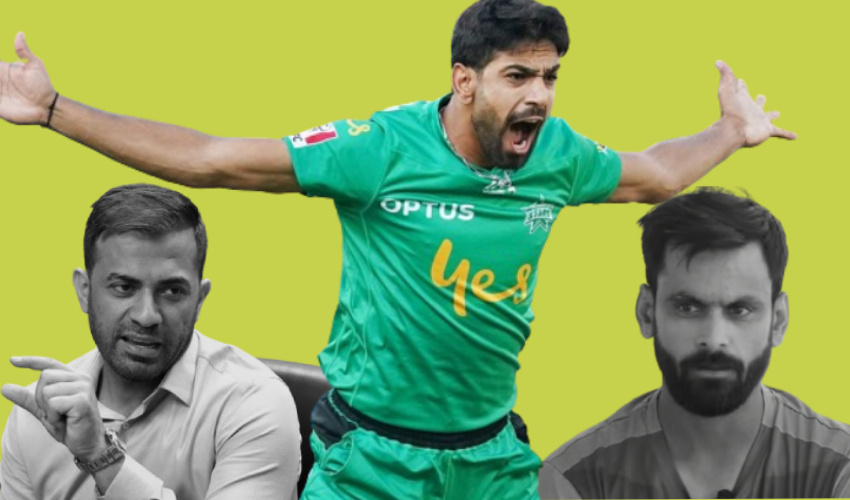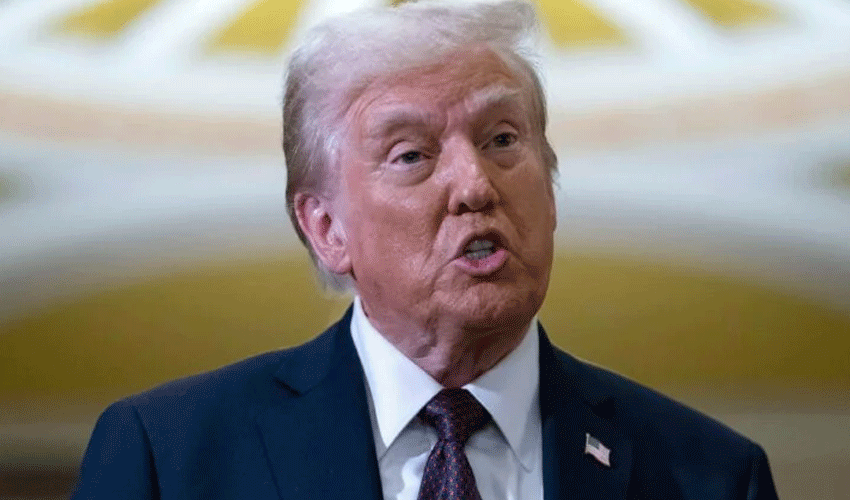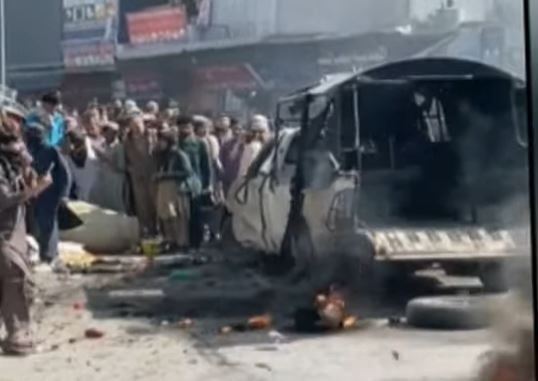Pakistani fast bowler Haris Rauf's involvement in the Big Bash League (BBL) may be delayed as the Pakistan Cricket Board is considering withholding his No-Objection Certificate (NOC), reports ESPNcricinfo.
According to the cricket website, it is believed that Haris Rauf's NOC will not be issued until at least December 11, which is four days after the BBL starts.
It is uncertain whether it will be granted immediately after. Director Cricketer Mohammad Hafeez is expected to discuss Rauf's situation during his pre-departure press conference in Lahore.
The PCB has cited the ongoing National T20 Cup in Pakistan, which concludes on December 10, as the official reason for the delay.
The board expects Haris Rauf to compete in the entire tournament.
Last week, Pakistan's newly appointed chief selector Wahab Riaz revealed that the fast bowler had opted out of Pakistan's Test series in Australia.
Wahab expressed his disappointment with Haris Rauf's decision, and there are different versions of the events that led to it.
As chief selector, Wahab holds significant power in deciding which players receive NOCs and when, and there is no assurance that this conflict will be settled amicably.
Haris Rauf's absence from the BBL is likely to cause friction, especially with the Melbourne Stars, who recruited him as a star player.
Initially, it was assumed that the pace sensation would only miss the BBL during Pakistan's five-match T20 series in New Zealand in mid-January, but further delays will also disrupt that league's plans.
Haris Rauf's availability has been heavily utilized as a marketing tool for the BBL this year, as the league - and Cricket Australia overall - aims to attract their domestic South Asian audience through a strategic marketing plan.
The Melbourne Stars offered a "House of Rauf" Membership for the first three games at the MCG this year, as well as a dedicated seating area called Haris Rauf Bay, reports the website.
If the pacer's NOC situation becomes protracted, it could raise concerns among Pakistan's centrally contracted players.
Prolonged contract negotiations between the PCB and the players were partially hampered by disagreements regarding the number of foreign leagues the players could join each year.



























